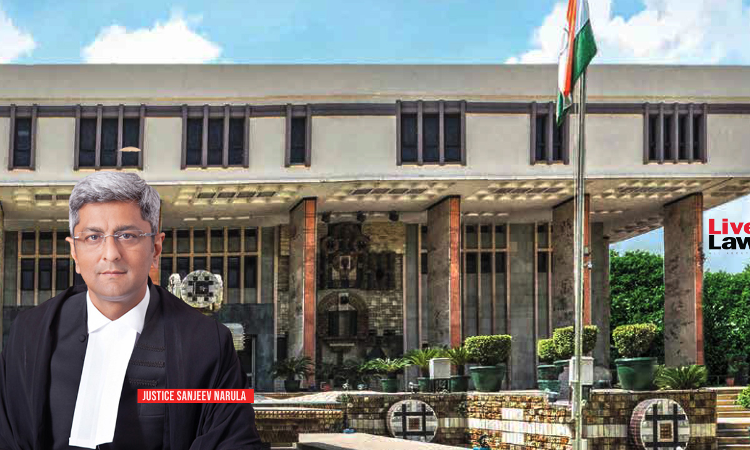Release U/S 436A CrPC Not Automatic Even When Offence Does Not Entail Death Penalty: Delhi High Court
LIVELAW NEWS NETWORK
30 Sept 2025 9:00 PM IST

The Delhi High Court has made it clear that release on bail under Section 436A of CrPC is not automatic even where the offence alleged does not entail death penalty.
For context, Section 436A CrPC prescribes the maximum period for which an undertrial prisoner can be detained.
It states that an accused (not booked for offence prescribing death penalty as one of the punishments), who has undergone detention for up to one-half of the maximum imprisonment specified for that offence, shall be released on bail.
Justice Sanjeev Narula however relied on the proviso, which vests discretion in the Court to decline release, even where the threshold of detention is crossed, provided reasons are recorded in writing.
“Thus, even in cases where the offence does not entail death as a punishment, release under Section 436-A is not automatic, but subject to judicial discretion based on the facts and circumstances of each case,” the bench said.
The development comes in a bail plea moved by an undertrial, booked in connection with the brutal murder of two undertrial prisoners inside a jail van, while being transported under escort.
The Applicant has been booked under Section 302 (murder) IPC among other charges, and thus faces the possibility of death penalty.
He sought bail on grounds of prolonged incarceration and heavily relied on Ministry of Home Affairs guidelines dated 27th September, 2014, which note that where the maximum punishment prescribed is life imprisonment, the same should be reckoned as equivalent to 20 years and on that basis, the 'half-life' of the sentence for the purposes of Section 436A would be ten years, entitling an undertrial to be considered for release upon completion of that period.
The High Court however said that Section 436A is not an indefeasible right and its benefit is not available to undertrial prisoners who are facing trial for offences punishable with death. “This limitation is categorical and operates as an exception to the general rule of release on bail after undergoing one-half of the maximum period of imprisonment,” it said.
“While it is true that the imposition of capital punishment is reserved for the rarest of rare cases, it is equally well-settled that the existence of death as a statutorily prescribed punishment brings the offence within the express exclusion contemplated under Section 436-A of the Cr.P.C. Accordingly, the Applicant's reliance on Section 436-A is clearly misplaced, as the provision does not extend to undertrial prisoners charged with offences punishable with death. Even otherwise, the provision itself is qualified by a proviso, which vests discretion in the Court to decline release, even where the threshold of detention is crossed, provided reasons are recorded in writing,” the Court added.
On arguments relating to delay in trial and consequent infraction of Applicant's fundamental right to speedy trial under Article 21, the Court said,
“it is apparent that the delay in completion of trial cannot be laid wholly at the doorstep of the Prosecution. The report from the Trial Court makes it evident that a considerable portion of the delay is traceable to the conduct of certain co-accused, who absconded while on interim bail and had to be declared proclaimed offenders, thereby stalling the proceedings for several months. Systemic disruptions, particularly the Covid-19 pandemic, also contributed to the loss of judicial time.”
Accordingly, the bail plea was dismissed.
Appearance: Mr. Sumeet Shokeen, Mr. Prayag D. Sehrawat, Mr. Prateek and Mr. Deepesh, Advocates for Petitioner; Mr. Mukesh Kumar, APP. Insp. Hitender Kumar, PS: Mangol Puri
Case title: Sunil Maan v. State
Citation: 2025 LiveLaw (Del) 1233
Case no.: BAIL APPLN. 1795/2025


